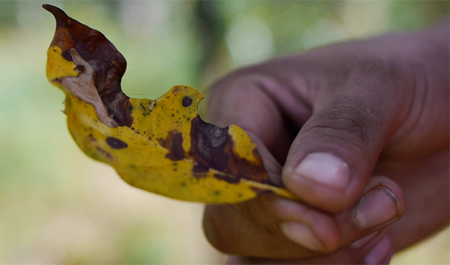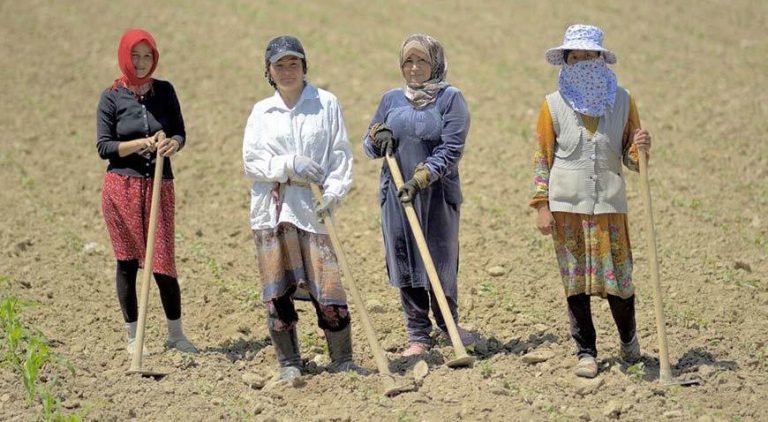by Tim Aldred, Head of Policy
Our Head of Policy, Tim Aldred, looks ahead to Fairtrade campaigning in 2020
Following a bruising and fractious General Election campaign, there is probably a temptation to have a break from politics for the holidays. But we all might want to take a few minutes away from shopping for Fairtrade Christmas presents and ready ourselves for some vital campaigning.
Boris Johnson’s government is moving quickly, and as we look ahead to Brexit at the end of January, a whole set of policy areas are set for a huge shake-up. There’s still a lot of detail we don’t know about the PM’s plans, but here are just three things in the PM’s inbox which could have a big impact on Fairtrade farmers in 2020.
1. Negotiating new trade deals
At the risk of stating the obvious – trade! In the short term, the withdrawal agreement should ensure that Fairtrade farmers don’t see immediate changes in their ability to trade with the UK. But bigger changes are not far off. As the UK begins to negotiate new trade deals, the relative competitiveness of products from different countries could start to change, altering the “market access” for Fairtrade goods. Trade deals have complex, far-reaching consequences, and no-one wants to see those at the start of the supply chain losing out. The final deal (or no-deal) with the EU at the end of 2020 also matters – a lot! Plenty of Fairtrade products come into the UK via continental Europe, and lots more go the other way. Fairtrade farmers will lose out if our trade with the EU gets harder or more expensive.
That’s why we want the government to conduct impact assessments for all planned deals which look at the likely effects of new deals on poverty, environment and human rights in poorer countries. That’s also why we want negotiations for new deals to be transparent and open to robust scrutiny in Parliament. It is important that any unintended consequences for developing countries – including the farmers and workers we work with – can be identified and avoided. We also think that’s a good way to spot opportunities for the UK to improve the deal that the poorest farmers and workers currently get out of their trade with the UK. African leaders will be in the UK for a trade and investment summit in late January – we’ll be calling for their discussion to be about making trade work for the poorest in our world.
2. Food security in the UK
Next up – food and agriculture. An Agriculture Bill will replace the Common Agricultural Policy. This is a big deal for anyone who cares about the sustainability and fairness of the UK’s food supply. At the moment around half of our food comes from overseas, and over ten percent of that from developing countries (if that seems big, just check out where your vegetables and fruit have come from when you next do your weekly shop). So getting our international food strategy right is critically important: the sustainability of food coming from overseas matters for our own food security; at the same time, Fairtraders will want to see the best possible deal for farmers and workers who may well be working in exploitative conditions, despite growing the food for our supermarket shelves. And, of course, the challenge gets harder every year as the climate crisis begins to take hold on food production all over the world. This could hardly be more important.
3. Farming in a climate crisis
Finally (at least for now) – we are only one year out from COP 26, the next major UN climate summit, to be held in Glasgow. Fairtrade farmers are telling us right now that unless action is taken quickly, their ability to grow the food we love will get harder and harder. The bitter irony is that increased trade usually leads to more carbon released into the atmosphere – but we can’t solve this problem without talking about it. We urgently need new models of trade and business that put farmers and workers – and also our planet – first.
None of this will be easy – but it is all well worth fighting for. We’ll need you, our campaigners, to make the voice of farmers and workers heard.
From all of us here in the Fairtrade team, have a good rest over Christmas – January will be busy.
Sign up to emails to join the fight for fairer trade
You might also like

Why fairer trade is crucial to fighting the climate crisis
11 December, 2019‘The fight for democracy and justice and the fight against environmental breakdown are one and the same.’ – George Monbiot

10 ways Fairtrade helps advance the UN Sustainable Development Goals
23 October, 2019Here are ten ways Fairtrade contributes to the Sustainable Development Goals (SDGs).

